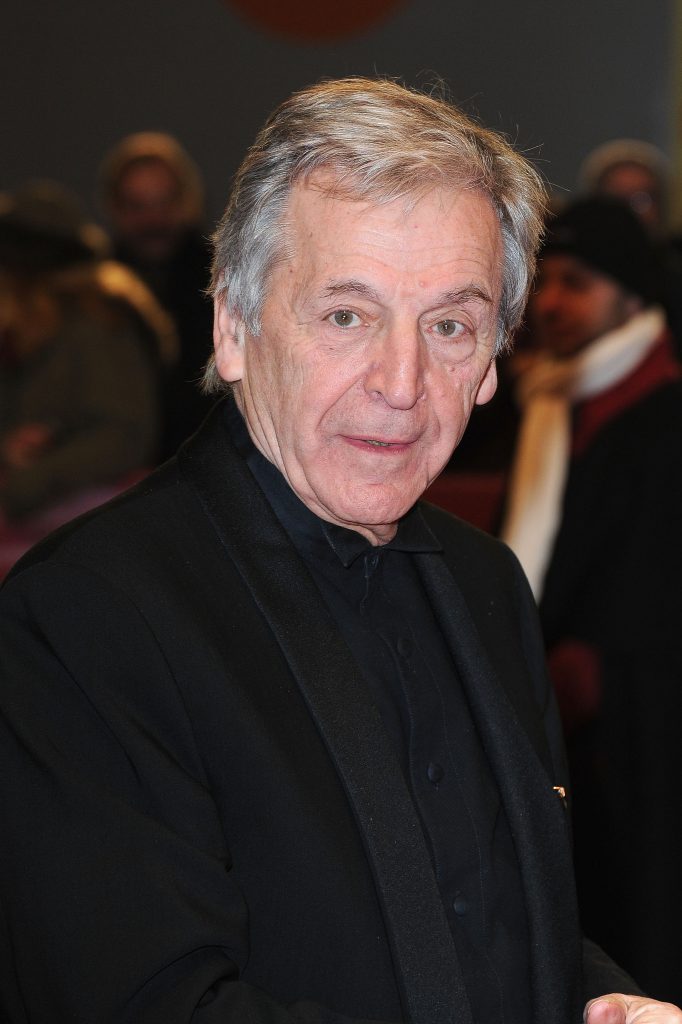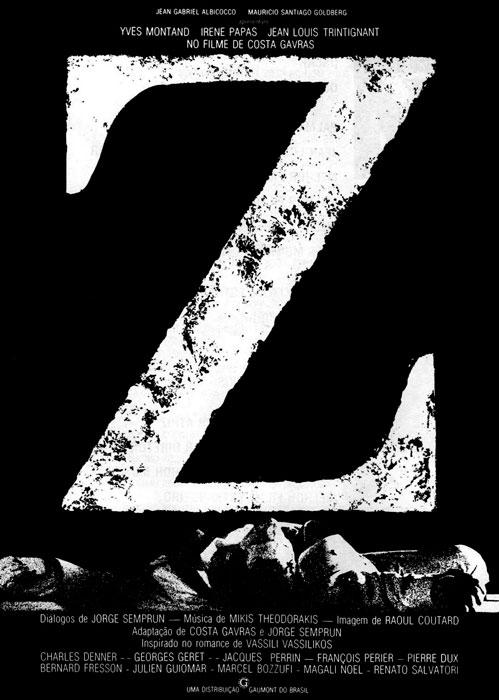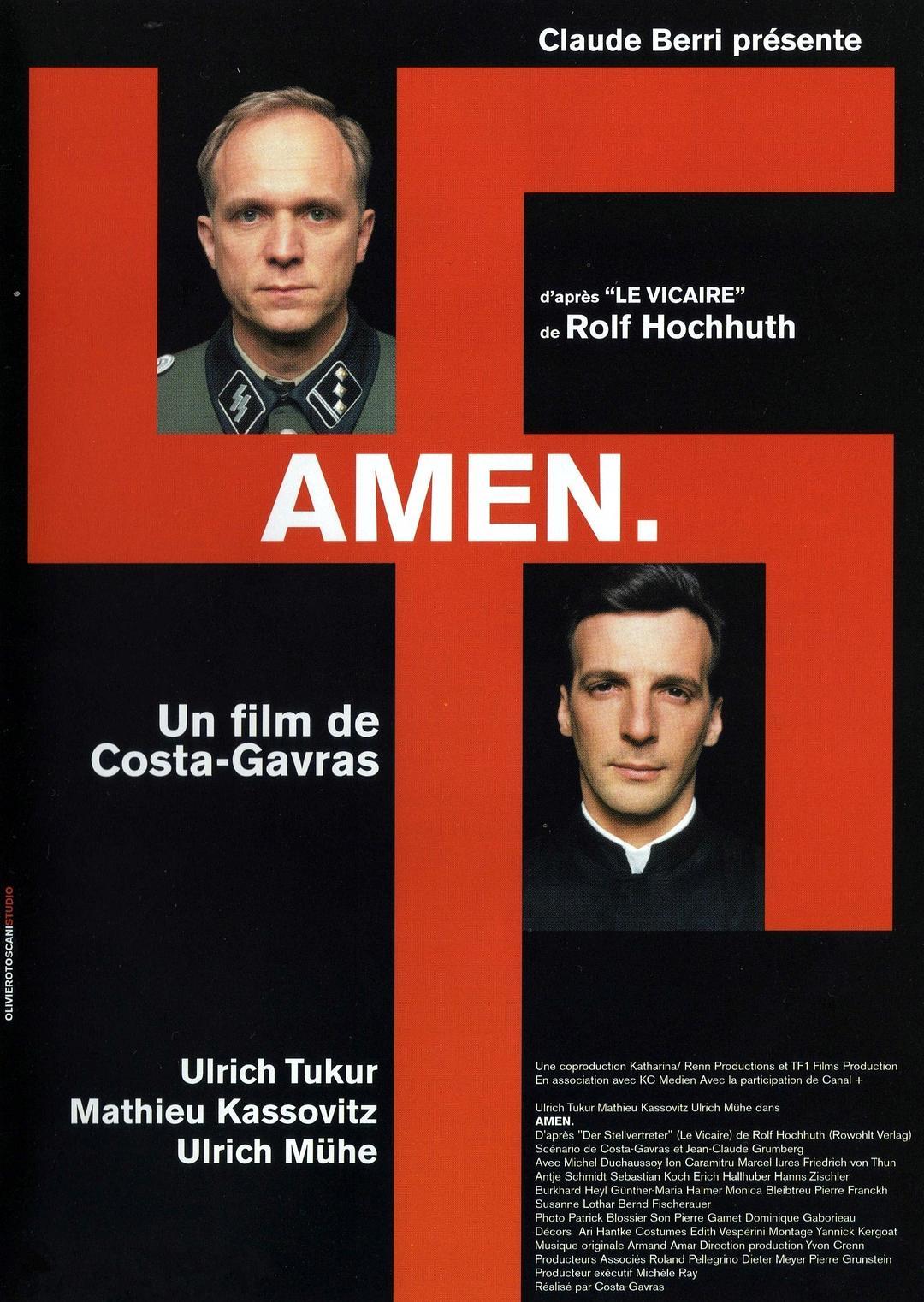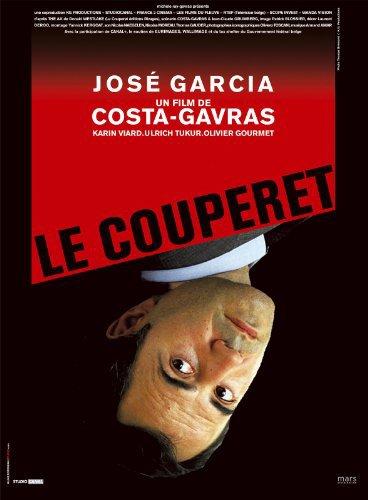
Costa-Gavras
Birthdate: Feb 12, 1933
Birthplace: Loutra-Iraias, Greece
Known as one of the most politically committed mainstream international filmmakers since the 1960s, the durable Greek-French filmmaker Costa-Gavras (birthname: Konstantinos Gavras) has earned universal acclaim for a career of great distinction. His breakout drama, Z (1969), was the first film since Jean Renoir’s Grand Illusion (1937) to be Oscar-nominated for Best Picture and Best Foreign-Language Film, a charged political film that was also a box-office hit in American cities and suburbs.
Not unlike Milos Forman, Costa-Gavras has managed the rare balance of a respected European-based filmmaker who has also been embraced by Hollywood, as represented by such films as Missing. (1982), with Jack Lemmon and Sissy Spacek, which won the Best Screenplay Oscar in 1983. The recipient of many major career achievement awards, Costa-Gavras received the prestigious Leopard Career Award from the Locarno Film Festival in 2022.
Costa-Gavras, after being trained in filmmaking at Paris’ Institute for Advanced Cinematographic Studies, worked as a director apprentice for director Yves Allegret, as well as an assistant director for the novelist and filmmaker Jean Giono, Henri Verneuil, master French filmmakers René Clair and Rene Clement, and New Wave director Jacques Demy on Bay of Angels (1963), with Jeanne Moreau. In 1965, Costa-Gavras made his writing-directing debut with the wildly entertaining murder-thriller, The Sleeping Car Murders (Compartiment tueurs), with the star-studded cast of Yves Montand, Simone Signoret, Michel Piccoli, Jean-Louis Trintignant, Jacques Perrin, and Catherine Allegret.
Costa-Gavras shifted into the politically-themed action/thrillers for which he became famous with Shock Troops (Un homme de trop), about a group of French Resistance fighters, with Charles Vanel, Bruno Cremer, Jean-Claude Brialy, Piccoli, Perrin, Claude Brasseur, and Pierre Clementi. The director’s great international hit, Z, starring Yves Montand, transformed his career trajectory from being a commercial French filmmaker to an international auteur star.
After Z, Costa-Gavras proceeded on a remarkable fifty-year string of political dramas made for a crossover audience of mainstream and arthouse audiences, including The Confession (L’aveu) (1970), with Yves Montand and Simone Signoret; the Uruguay-set State of Siege (1972), again with Montand, and Renato Salvatori, and the first of Costa-Gavras’ movies critiquing U.S. involvement in Latin America; Special Section (1975), about France’s pro-Nazi Vichy government during World War II, with Louis Seigner, Michael Lonsdale, and Michel Galabru; Clair de femme (1979), once again with Montand in a drama with Romy Schneider.
Costa-Gavras made his first English-language film in 1982 with Missing., co-written with Donald E. Stewart, and based on the true account of an American killed during the Chilean military junta, going to win Cannes’ Palme d’Or and was nominated for four Oscars, including Best Picture, Actor (Jack Lemmon), Actress (Sissy Spacek) and a win for Best Adapted Screenplay. Costa-Gavras turned to another hot-button issue, the Israeli-Palestinian conflict, with Hanna K. (1983), Jill Clayburgh, Gabriel Byrne, and Jean Yanne.
A departure from his usual political films, Family Business (Conseil de Famille) brought Costa-Gavras back to France for a crime comedy with Johnny Hallyday, Fanny Ardant, and Guy Marchand; it was back to Hollywood, with screenwriter Joe Eszterhas and producer Irwin Winkler, with stars Debra Winger and Tom Berenger, for Costa-Gavras to direct the American neo-Nazi drama Betrayed (1988) for MGM/UA. Once again, Costa-Gavras partnered with writer Eszterhas for the American drama involving Hungarian fascists, Music Box (1989), starring Jessica Lange, Armin Mueller-Stahl, Frederick Forrest, and Lukas Haas, and the winner of the Berlin Film Festival’s Golden Bear prize.
Costa-Gavras continued his pattern of occasionally returning to France to make lighter fare with the comedy, La Petite Apocalypse (1993), with Andre Dussolier, Pierre Arditi, and director Jiri Menzel. Costa-Gavras jumped the Pond again for a fascinating American drama about the ways economic stresses affect the middle class, Mad City (1997), starring Dustin Hoffman, John Travolta, Alan Alda, and Blythe Danner.
In recent decades of the new century, Costa-Gavras has been making his movies largely with European casts and money. His next project was yet another return to World War II for the charged French-German drama about the strange relations between Nazi Germany and the Vatican and based on Rolf Hochhuth’s novel, Amen. (2002), with Mattieu Kassovitz and Ulrich Tukur, nominated for seven Cesar Awards and competed at the Berlin Film Festival.
Co-writing again with Jean-Claude Grumberg, Costa-Gavras made the terrific French black comedy-drama about corporate downsizing based on the Donald Westlake novel, The Ax (Le couperet), starring José Garcia and Karin Viard. In a time-out from directing, Costa-Gavras co-wrote the script with Grumberg (and Laurent Herbiet), The Colonel (Mon colonel) (2006), with Olivier Gourmet, Robinson Stévenin, Cécile de France, and Charles Aznavour. As director and co-writer (again with Grumberg), Costa-Gavras tackled the global illegal immigrant issue with the French-produced Eden Is West (2009), with Ricardo Scamarcio and Ulrich Tukur, premiering at the Berlin Film Festival.
Another Costa-Gavras-Grumberg script, with Karim Boukercha, was Capital (2012), a hard-hitting drama about corporate criminality, starring Gabriel Byrne, winning the FIPRESCI prize at the Toronto Film Festival. In a striking change of pace, Costa-Gavras returned to his native Greece to film there for the first time for Adults in the Room (2019), a dramatization of Greece’s popular finance minister Yanis Varoufakis’ battle against the economic establishment of the European Union, with Ulrich Tukur and Valeria Golino.
Personal life
Costa-Gavras was born and raised in the village of Loutra Iraias on Greece’s Peloponnesus peninsula. His family moved to Athens after World War II. Costa-Gavras’ father was a member of the Greek Communist Party and was arrested and imprisoned during the 1943-1949 Greek Civil War. Due to his father’s Communist ties, Costa-Gavras couldn’t study at Greek universities nor receive a U.S. visa.
Instead, Costa-Gavras emigrated to France and attended and graduated from the Sorbonne in Paris. He then studied filmmaking at the Institute for Advanced Cinematographic Studies. One of his cousins is filmmaker Penelope Spheeris. He is married to journalist Michèle Ray; the couple has three children, film producer Alexandre, filmmaker Julie, and filmmaker Romain Gavras.
Known For
Awards
Winner, Best Adapted Screenplay, Academy Awards (1983); Two-time Nominee, Best Director/Best Adapted Screenplay, Academy Awards (1970); Winner, Best Screenplay, BAFTA Awards (1983); Two-time Winner, Golden Bear/Berlinale Camera, Berlin Film Festival (1990, 2002); Three-time Winner, Jury Prize/Best Director/Palme d’Or, Cannes Film Festival (1969, 1975, 1982); Winner, Best Screenplay, Cesar Awards (2003); Nominee, Best Director, Directors Guild of America Award (1970); Winner, Honorary Award, European Film Awards (2018); Two-time Nominee, Best Director/Best Screenplay, Golden Globes Awards (1983); Winner, Leopard Career Award, Locarno Film Festival (2022); Winner, Best Film, Lumiere Awards (2003); Winner, Special Career Prize, Moscow Film Festival (2013); Winner, Best Director, New York Film Critics Circle Awards (1969); Winner, Prix Louis Delluc (1972); Two-time Winner, Donostia Lifetime Achievement Award/Guipuzcoan Solidarity Award, San Sebastian Film Festival (2012, 2019); Winner, Jaeger-LeCoultre Glory to the Filmmaker Award, Venice Film Festival (2019); Winner, Best Adapted Drama Screenplay, Writers Guild of America Awards (1983).
Costa-Gavras Movies
director
Previous (1)
actor
Previous (35)
producer
Previous (1)
Facts About Costa-Gavras
AKA: An early screen credit for Costa-Gavras is “Kosty Gavras.”
Philanthropist: Costa-Gavras is the creator of Fondation Gan pour le Cinema, as well as its honorary president.
Monsieur Le President: Costa-Gavras has been President of Cinémathèque Française twice.







